Facial Feminization Surgery (FFS) in Germany
Search and Compare the Best Clinics and Doctors at the Lowest Prices for Facial Feminization Surgery (FFS) in Germany

Find the best clinics for Facial Feminization Surgery (FFS) in Germany
No pricing info available
Thailand offers the best prices Worldwide
Price: $ 1,945
From 163 verified reviews
Birget Wendt, 21 September 2020
Hallo liebes Team der Helios Klinik, ich möchte mich ganz herzlich bei der Dialyse und der Stadion P 5 bedanken. Ein besonderen Dank gehen an Herrn Dr. Tuerk - leider nicht mehr in der Klinik, Frau Dr. Vorberger, Frau Dr. Schmidtchen, Frau Dr Lembcke,Herrn Dr. Wolkewitz, Schwester Antje, Schwester Carina. Ich sage 1000 Dank - ich wart Spitze - und ich glaube eine kleine Gehaltserhöhung - würde gut zu passen. Zwinka, zwinka. Es gibt natürlich auch die Schattenseite - sehr arrogant - die müssen aufpassen das die nicht über ihre eigenen Füße stolpern. Professor Dr. Nürnberg und Frau Dr. Haefner. Setzen - die Note 6 wird erteilt. Die Beiden müssen noch viele Seminare der Menschlichkeit und wie gehe ich mit Angehörigen von sehr schwer kranken Menschen um. Bleibt alle gesund. Vielen lieben Dank - B. Wendt
- Home
- Germany
Compare Before & After Photos of _procedure_photos.phpFacial Feminization Surgery (FFS)
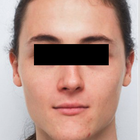
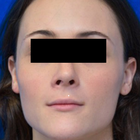
Front view
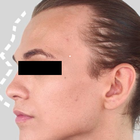
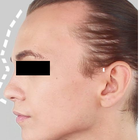
Half-side view
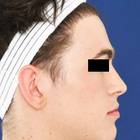
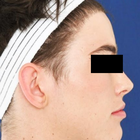
Full-side view
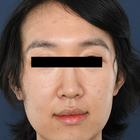
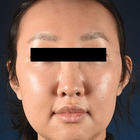
Front view
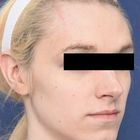
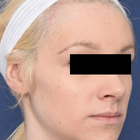
Half-side view
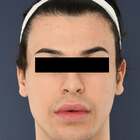
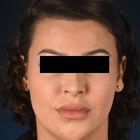
Front view
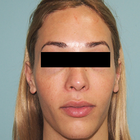
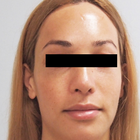
Front view
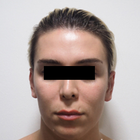

Front view
WHY US?
At Medijump, we're making medical easy. You can search, compare, discuss, and book your medical all in one place. We open the door to the best medical providers worldwide, saving you time and energy along the way, and it's all for FREE, no hidden fees, and no price markups guaranteed. So what are you waiting for?

Free

Best Price

Widest Selection

Risk-Free
What you need to know about Facial Feminization Surgery (FFS) in Germany
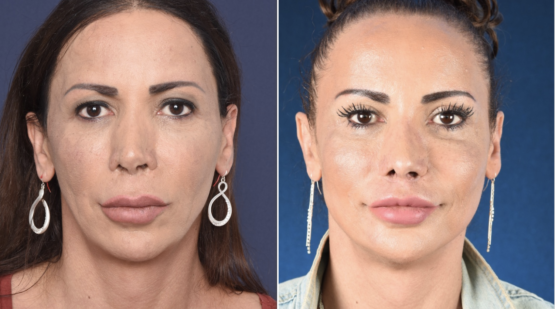
Facial Feminization Surgery, often abbreviated as FFS, is an extensive surgical process designed to modify masculine facial characteristics into a more feminine appearance. The procedure comprises several surgeries including rhinoplasty, forehead recontouring, and jaw and chin modifications. FFS is frequently sought after by transgender women desiring to more authentically express their gender identity. Any potential patient is advised to consult with a licensed surgeon to personalize the surgical plan according to their specific needs and aspirations.
Facial Feminization Surgery (FFS) usually necessitates an exhaustive pre-procedure assessment. This involves a thorough review of the patient's medical history, a complete physical examination, a psychological evaluation, and possibly facial x-rays. The surgeon will also discuss the aesthetic objectives, benefits, risks, and potential complications of the surgery with the patient. A collaborative decision-making approach is used to ensure patient safety and contentment following the procedure.
In this before and after example, the patient underwent Rhinoplasty, Chin recontouring, Jaw reduction, Lip lift, and eyelid surgery (blepharoplasty). The photo is taken 4 months post-op.
What is the cost of Facial Feminization Surgery (FFS) in Germany?
Various elements such as the surgical complexity, hospital stays, anesthesiologist costs, and surgeon's fees influence Facial Feminization Surgery (FFS) pricing in Germany. On average, possible charges vary from $20,000 up to $50,000. A detailed price breakdown from your healthcare provider will provide an exact view of the cost details.
The value of the procedure does not necessarily need to compromise the quality and standards of the surgery. Gain clarity about what components are inclusive and exclusive in the overall cost to understand thoroughly what your payment encompasses. Insurance firms usually do not cover aesthetic procedures, hence comprehensive knowledge and prudent financial preparation will streamline the procedure and make the Facial Feminization Surgery (FFS) a valid investment in enhancing your self-perception and assurance.
What does a Facial Feminization Surgery (FFS) Procedure Involve?
Facial Feminization Surgery (FFS) entails a range of tailored techniques aimed at personal needs with a focus on feminizing and gently modifying the facial structure. These techniques may encompass forehead reshaping, adjustments to the jaw and chin, rhinoplasty, facelifts, and other unique enhancements. The rising trend in health and well-being-oriented medical research is mirrored in personalized surgery schemes, ensuring the outcomes are attuned to individuals.
Normally, a care center will execute an in-depth consultation process to comprehend your aesthetic aspirations and draft a surgical blueprint. This evaluation is essential in harnessing the maximum advantages from the Facial Feminization Surgery (FFS). Ensuring the health and safety of the patient, a pre-operative assessment, encompassing a review of physical health and mental well-being, is a crucial measure.
How Long Should I Stay in Germany for a Facial Feminization Surgery (FFS) Procedure?
During the planning phase for Facial Feminization Surgery (FFS), considering the necessary time for the operation and subsequent recovery is vital, in order to ensure a seamless return to standard duties. The length of your Germany visit is heavily influenced by the surgery’s intricacy, your personal health condition, and your recovery speed. Generally, a timeframe of one to two weeks is advised before getting back to everyday activities.
However, the precise timeline can differ considerably, with follow-up meetings commonly arranged during your stay. These are paramount for evaluating your progress and identifying any possible surgical complications. This window also presents a chance for practising respiratory exercises and other preventive health methods to expedite a seamless recovery. Adherence to all the instructions given by your surgeon during this term is critical, as this significantly influences the success rate of the Facial Feminization Surgery (FFS).
What's the Recovery Time for Facial Feminization Surgery (FFS) Procedures in Germany?
Recovery from Facial Feminization Surgery (FFS) can differ among individuals, largely depending on the procedure's scope and the patient's overall health. Usually, patients require approximately six weeks of recuperation before they can engage in strenuous activities. During this time, individuals may experience swelling, bruising, and discomfort related to the surgery, but these symptoms typically diminish over time.
Getting plenty of rest, maintaining adequate hydration, and consuming a balanced diet can aid in accelerating recovery. It's vital to strictly follow the healthcare provider's advice regarding prescribed medicines, care of surgical wounds, and limitations on activities to prevent complications and promote healing. Keep in mind that health and well-being extend beyond the surgical procedure itself, so comprehensive aftercare is essential for successful outcomes.
What sort of Aftercare is Required for Facial Feminization Surgery (FFS) Procedures in Germany?
Appropriate aftercare is a vital component of successful Facial Feminization Surgery (FFS) and significantly influences the recovery process. It may include prescribed medications, regular medical check-ups, custom-made nutrition plans, and effective weight management. The recovery phase could span several weeks, during which adequate rest is paramount for a seamless recuperation.
Patients are often advised by their surgeons to temporarily abstain from rigorous physical activities and to maintain a healthy lifestyle. The latter should incorporate balanced nutrition, staying hydrated, taking supplements, and ensuring proper sleep and mental health management. It's important to note that adherence to the prescribed aftercare plan and attendance at follow-up visits are key to tracking improvements and promptly addressing any potential complications.
What's the Success Rate of Facial Feminization Surgery (FFS) Procedures in Germany?
Facial Feminization Surgery (FFS) is recognized as an extremely successful surgery that produces transformative and enduring outcomes. The success rate fluctuates depending on various factors, including the proficiency of the surgeon, the overall health of the patient, and the quality of care after the surgery. A majority of patients report high levels of satisfaction, citing increased self-confidence and an enhanced quality of life.
It's important to understand, however, that despite its high success rate, the procedure isn't without potential risks and complications. Complications like infections, scarring, and dissatisfaction with the aesthetic outcome are potential, though they are rare occurrences. Thorough pre-operative evaluations, skilled surgical hands, and comprehensive post-operative care significantly lessen these risks. Consequently, when selecting the most suitable protocol for your Facial Feminization Surgery (FFS), the guiding factors should be patient safety and satisfaction.
Check out this video for before and after images of FFS patients, you'll be amazed by some of the results made possible by this surgical procedure.
Are there Alternatives to Facial Feminization Surgery (FFS) Procedures in Germany?
Bear in mind that each person's needs and preferences are distinct, and surgical interventions might not be the most suitable route for everyone. There are other alternatives available for those who might be more inclined towards non-surgical solutions. Aesthetic treatments like injectable fillers, Botox, and others can simulate some effects of the Facial Feminization Surgery (FFS) on a temporary basis. However, cosmetic treatments of this kind typically necessitate ongoing sessions to preserve the sought after result.
Furthermore, some individuals might prefer to engage in psychological or behavioral therapies that encourage self-acceptance and a positive body image. Such therapies address the mental health components of self-image and gender dysphoria, offering a different perspective to surgery. Having open-ended discussions with healthcare providers to explore all the available options prior to making a decision is strongly advised.
What Should You Expect Before and After the Facial Feminization Surgery (FFS)?
Prior to undertaking Facial Feminization Surgery (FFS), patients participate in an in-depth consultation process. During this stage, surgeons evaluate the individual's health status, expectations, and motivations to design a treatment program that best meets their needs. Various health screenings may be conducted to verify the patient's physical suitability for the operation.
Post-procedure, initial weeks may bring about some degree of discomfort, swelling, and bruising, which will progressively decrease. Adequate post-procedure care can significantly improve recovery and the ultimate outcome of your Facial Feminization Surgery (FFS). It's crucial to maintain regular communication with your surgeon and promptly report any unusual symptoms. The goal is to ensure a successful surgical procedure followed by a rapid and smooth recovery, guiding you towards a more self-assured version of yourself.
What is the Preoperative Preparation for Facial Feminization Surgery (FFS) in Germany?
Preparing for Facial Feminization Surgery (FFS) entails addressing both physical and mental aspects to ensure successful surgery and recuperation. Patients undergo comprehensive evaluations involving various diagnostic tests to determine their overall health and suitability for the surgery. Moreover, patients may need to halt tobacco use, moderate alcohol consumption, and adjust certain medications—especially those affecting blood clotting—as these factors could disrupt both the surgical process and healing.
In addition, therapy sessions may be suggested to assist individuals in managing the psychological implications of such a life-changing procedure. A balanced diet is also pivotal in enhancing the body's healing capacity; adopting a healthy eating regimen, such as the Mediterranean diet, and considering suitable nutritional supplements can optimize preoperative preparation. Emphasizing mental wellbeing is another vital aspect of the journey, and implementing stress management strategies can prove beneficial during this period.
What are the Long-term Implications of Facial Feminization Surgery (FFS) in Germany?
Facial Feminization Surgery (FFS) is often viewed as a long-term commitment that yields lasting and significant transformations. It significantly enhances self-image and self-confidence, leading to a substantial improvement in life quality. Though the changes induced by the surgery are generally unchanging, sustaining a consistent weight and adopting a healthy lifestyle are vital in preserving the results.
It's important to bear in mind that adjusting psychologically is an integral aspect of such a transformative experience. Individual or group therapies can aid in navigating these changes, fostering deep-seated growth and self-understanding following the Facial Feminization Surgery (FFS). Always remember, the success of a procedure goes beyond the physical alteration—it also involves overall wellbeing, health, and a positive life perspective.
Whilst the information presented here has been accurately sourced and verified by a medical professional for its accuracy, it is still advised to consult with your doctor before pursuing a medical treatment at one of the listed medical providers
No Time?
Tell us what you're looking for and we'll reachout to the top clinics all at once
Enquire Now

Popular Procedures in Germany
Prices Start From $96

Prices Start From $111

Prices Start From $70

Prices Start From $16

Prices Start From $220

Prices Start From $28

Prices Start From $672

Prices Start From $275

Prices Start From $101

Prices Start From $556

Prices Start From $4,377

Recommended Medical Centers in Germany for Facial Feminization Surgery (FFS)

- Interpreter services
- Translation service
- Religious facilities
- Medical records transfer
- Medical travel insurance
- Health insurance coordination
- TV in the room
- Safe in the room
- Phone in the room
- Private rooms for patients available

- Interpreter services
- Translation service
- Religious facilities
- Medical records transfer
- Medical travel insurance
- Health insurance coordination
- TV in the room
- Safe in the room
- Phone in the room
- Private rooms for patients available

- Interpreter services
- Translation service
- Religious facilities
- Medical records transfer
- Medical travel insurance
- Health insurance coordination
- TV in the room
- Safe in the room
- Phone in the room
- Private rooms for patients available

- Interpreter services
- Translation service
- Religious facilities
- Medical records transfer
- Medical travel insurance
- Health insurance coordination
- TV in the room
- Safe in the room
- Phone in the room
- Private rooms for patients available

- Interpreter services
- Translation service
- Religious facilities
- Medical records transfer
- Medical travel insurance
- Health insurance coordination
- TV in the room
- Safe in the room
- Phone in the room
- Private rooms for patients available

- Interpreter services
- Translation service
- Religious facilities
- Medical records transfer
- Medical travel insurance
- Health insurance coordination
- TV in the room
- Safe in the room
- Phone in the room
- Private rooms for patients available

- Interpreter services
- Translation service
- Religious facilities
- Medical records transfer
- Medical travel insurance
- Health insurance coordination
- TV in the room
- Safe in the room
- Phone in the room
- Private rooms for patients available

- Interpreter services
- Translation service
- Religious facilities
- Medical records transfer
- Medical travel insurance
- Health insurance coordination
- TV in the room
- Safe in the room
- Phone in the room
- Private rooms for patients available

- Interpreter services
- Translation service
- Religious facilities
- Medical records transfer
- Medical travel insurance
- Health insurance coordination
- TV in the room
- Safe in the room
- Phone in the room
- Private rooms for patients available

- Interpreter services
- Translation service
- Religious facilities
- Medical records transfer
- Medical travel insurance
- Health insurance coordination
- TV in the room
- Safe in the room
- Phone in the room
- Private rooms for patients available
Facial Feminization Surgery (FFS) in and around Germany
About Germany
Germany, a titan in Central Europe and a vital constituent of the European Union, enjoys the reputation of having the finest healthcare system across the continent. Medical tourists often choose Germany due to its unrivaled service quality over cost, with Facial Feminization Surgery (FFS) procedures being the most in-demand.
Prices here exhibit a significant hike when compared to the neighboring countries of Poland and Hungary. Germany, despite housing just two JCI accredited facilities, places considerable trust in its local accreditation bodies.
This includes institutions such as the German Institute for Standardisation, the Telemedicine for the Mobile Society (TEMOS), and the Cooperation for Quality and Transparency in Healthcare (KTQ-GmBH). The language barrier is virtually non-existent as the majority of the doctors and medical staff exhibit proficiency in English. Beyond the capital city of Berlin, Munich, Hamburg, and Frankfurt are popular delectations among medical tourists.
Popular Parts of Germany
Home to an approximate 83 million inhabitants, Germany stands tall as the second most populated nation in Europe. The country presents a fascinating blend of deep-rooted history and cutting-edge technology. Visitors can pay their respects at numerous WWII memorials and museums, bask in the allure of the country's picturesque natural landscapes, or surrender to the tantalizing array of culinary delights that Germany has to offer. Truly, Germany embraces diverse interests, ensuring every traveller finds something to cherish.
- Berlin is Germany’s capital city. It is a vibrant city with diverse sights to see. Visit the glass dome of The Reichstag, take a walk through Brandenburg Gate, be inspired by Berlin Cathedral, or wander around a UNESCO World Heritage Site: Museumsinsel (Museum Island).
- Munich is home to a beautiful historic city center, futuristic drives, and outdoor fun. For a historical tour, tourists can travel to the Church of St. Peter, the city’s oldest parish church dating back six centuries. For a car lover, visit the BMW Museum to learn more about the history of BMW cars and motorcycles. For outdoor activity, tourists can surf at the Eisbach wave on the Isar river.
- Hamburg provides refreshing sea air. The city was labeled as “the gateway to the world” because it is a center of international trade. As the city revolves around water, tourists should stroll around the harbor, lay around beside the Elbe, or sail on the Outer Alster lake.
- Frankfurt am Main is the financial and business hotspot of Germany. Although it is packed with skyscrapers, the city still offers amazing architecture, a piece of history, and even a large green space in the city forest.
- Hanover calls itself as the “EXPO City” because it hosts several of the biggest exhibition in the world. The city also boasts an astonishing blend of modern and ancient. There are a number of museums and galleries, a large zoo, and innovative street art for tourists to explore.
Weather and Climate in Germany
The four distinct seasons make Germany a year-round destination for tourists. The summer starts in June and ends in August. The average temperature is 24 °C, sometimes even as high as 30 °C. People tend to enjoy outdoor activities during this season. This is also the most popular time to visit and peak travel season, so prices can be higher than usual.
Autumn graces Germany in the months of September and October. During this time, the weather is comfortably warm, closely mirroring that of summer. However, by mid-November, a notable drop in temperatures can be expected. This period is particularly popular among tourists owing to the much-celebrated Oktoberfest.
Winter in Germany, which runs from December through February, can be chilling with temperatures dropping to as low as -10°C. Yet, the festive vibrancy brought on by the Christmas season often offsets the cold. Visitors planning a trip during winter must ensure to pack ample warm clothing for a comfortable experience.
Spring in Germany marks the delightful bloom of cherry blossoms and typically spans from March through May. The transition into this season often ushers in a rapid rise in temperatures, making it a beautiful and warm period to visit.
Getting around in Germany
Frankfurt Airport is the largest airport in Germany. The airport serves domestic flights as well as international flights. It connects the country with almost every country in the world. The airport is the hub for Condor and Lufthansa. It also serves budget airlines such as Ryanair, Euro wings, Wizz Air. Düsseldorf International Airport and Munich Airport also receive their shares of international flights.
Train, bus, and taxi are the best options to get to the city center from Frankfurt Airport. A trip by train usually costs 4.65 EUR and takes around 40 minutes. Train tickets need to be punched, otherwise, you can get a 50 EUR fine. The bus costs 4.35 EUR and takes around 30 minutes. Buses that take tourists to the city center are No. 61, 77, 72, 58, 62, N81 and N7. Taxis are not very cheap, it will cost around 25 EUR and will take approximately 20 to 30 minutes to the city center.
As the creator of the first highway system, Germany has some of the best public transportation in the world. The public transportation is integrated with one ticket that gives tourists access to buses, trams, U-Bahn trains, and S-Bahn trains. A one-way fare starts from 2.90 EUR. It is better to get a one-day unlimited pass for 7 EUR or three days for 17 EUR.
Train travel is very efficient and affordable. Germany rail system has both high-speed trains and regular trains. High-speed trains are very fast but much more expensive. It’s advised to book train tickets in advance. Buses are the most cost-effective way to get around Germany although it is not as efficient as the train. Buses here are comfortable with air-conditioning and rest stops.
Taxis in Germany are expensive. All taxis are metered and start with a base fare of around 3.70 EUR. There is no Uber in the country, but tourists can use the MyTaxi App. If you want to get around the city, the best way is to rent a bicycle. Most cities are equipped with well-marked bicycle lanes.
Tourist Visas in Germany
Germany extends a cordial welcome to citizens from numerous nations, offering them visa-free entry. This privilege applies to travelers from Australia, New Zealand, Canada, Israel, Japan, Poland, the United States, and Switzerland, who are invited to stay for up to 90 days without the need for a visa.
Moreover, as a member of the European Union (EU), Germany adheres to the policy of open borders with its fellow EU nations. Consequently, EU citizens can freely travel to and enter Germany without any requirement for a visa. This ease of movement provides an added advantage for those wishing to visit Germany, whether for business, leisure, or medical purposes.
Citizens of other countries need a Schengen Visa. The application for a Schengen Visa must be filed with the embassy of the country of your primary destination. It is best to always check the requirements for Germany Visa Application before applying.
Additional Information
- Local Currency: the local currency is the euro (EUR). 1 USD converts to 0.94 EUR.
- Money & Payments: ATMs are easily available across the country. The easiest way to obtain cash is to use an ATM linked to international networks. Credit cards are not widely accepted in Germany, so always make sure to carry some cash. Some hotels, shops, and restaurants will accept credit cards. Tipping 1 EUR to room cleaners or porters is common. Most people add 5% or 10% tip in restaurants and bars. Tourists can tip about 10% to taxi drivers.
- Local Language: The official language is German. It is nice to know a little German to show respect. Many Germans in major cities and tourist areas will know a little English.
- Local Culture and Religion: 57% of Germany’s population follows Christianity, making it the largest religion in the country. Islam is the second largest religion. Buddhism, Judaism, Hinduism are also practiced.
- Public Holidays: Germany celebrates Christian religious holidays. The country hosts several festivals such as Maibaumaufstellung every 1st May and Oktoberfest in October.
Popular Searches
- Plastic Surgery in Thailand
- Dental Implants in Thailand
- Hair Transplant in Thailand
- Breast Augmentation Thailand
- Gastric Sleeve in Thailand
- Gender Reassignment Surgery in Thailand
- Laser Hair Removal in Bangkok
- Botox in Bangkok
- Dermatology in Bangkok
- Breast Augmentation in Bangkok
- Coolsculpting in Bangkok
- Veneers in Turkey
- Hair Transplant in Turkey
- Rhinoplasty in Turkey
- Stem Cell Therapy in Mexico
- Rhinoplasty in Mexico
- Liposuction in Mexico
- Coolsculpting in Tijuana
- Rhinoplasty in Korea
- Scar Removal in Korea
- Gastric Sleeve in Turkey
- Bone Marrow Transplant in India
- Invisalign in Malaysia
- Plastic Surgery in the Dominican Republic
- Tummy Tuck in the Dominican Republic
- Plastic and Cosmetic Surgery in Poland
- Rhinoplasty in Poland
- Hair Implant in Poland
- Dental Implants in Poland
- IVF in Turkey
